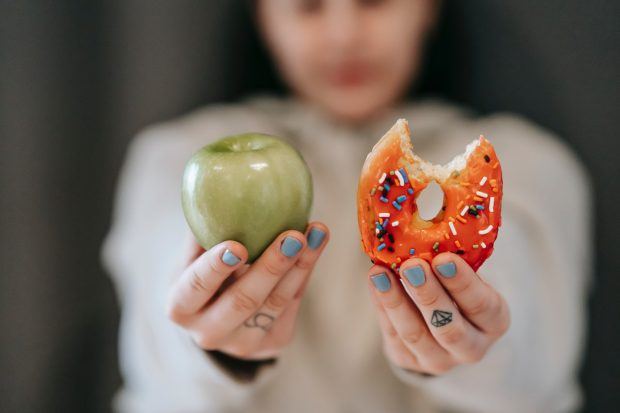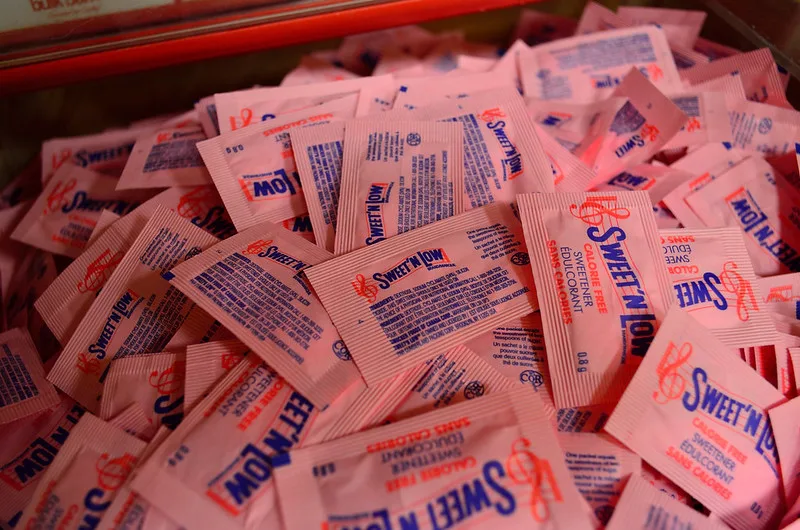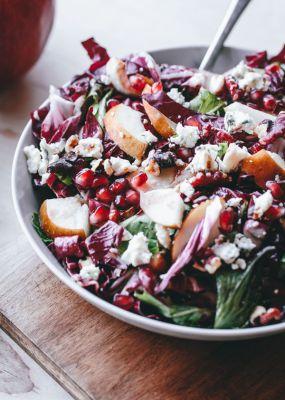In 2015, the World Health Organisation (WHO) issued guidelines on sugar intake, recommending that adults and children reduce their daily intake of free sugars to less than 10% of their total energy intake. The recommendation caused a spike in sugar alternatives. Many consumers looked at these alternatives not only as healthier but also as a tool for weight management.
Now, this past Monday, the WHO warned against using these artificial sweeteners. They claim that they do very little for weight loss and that they may affect your longevity.
What are artificial sweeteners?
According to the WHO, artificial sweeteners, also known as non-sugar sweeteners (NSS) are “all synthetic and naturally occurring or modified non-nutritive sweeteners that are not classified as sugars found in manufactured foods and beverages, or sold on their own to be added to foods and beverages by consumers.“
Common NSSs include:
- acesulfame K
- aspartame
- advantame
- cyclamates
- neotame
- saccharin
- sucralose
- stevia, and other stevia derivatives
How do artificial sweeteners affect longevity?
The WHO’s review analyzed 283 studies (some of which were observational, showing an association). The regulatory health body then concluded that the use of non-sugar sweeteners did not help consumers control their weight long-term. Rather, artificial sweeteners have a “low” impact on reducing body weight and calorie intake when compared with sugar.
The WHO also found that the review revealed a low increased risk for type 2 diabetes, high blood pressure, stroke, heart disease, and death from heart disease. There was also a low risk found for bladder cancer and early death from any cause, but both were very low.
Following these findings, the WHO advised against the use of these artificial sugars, adding that the recommendation applies to all people except those with preexisting diabetes because 1. None of the studies in the review included people with diabetes, and an assessment could not be made, and 2. These individuals may still benefit from using sugar substitutes.

Rostislav_Sedlacek/Shutterstock
It should be noted that the WHO’s recommendation isn’t necessarily about the safety of consumption. Instead, they want to show that if you’re worried about obesity, weight control, and the risk of non-communicable diseases, then you should probably stay clear of these ‘fake sugars’. In fact, their recommendation can be used as guidance for government health organizations in countries that may wish to use scientific analysis to implement policy changes for their citizens.
The WHO added that their recommendation was “conditional” as the association discovered may be confounded by complicated patterns of sweetener use and the characteristics of the study participants.
What have other studies found?
The WHO’s latest recommendation follows a host of studies that have delved into the health impact of using sugar substitutes.
- A recent study from the Cleveland Clinic found an association between erythritol, a popular artificial sweetener, and an increased risk of heart attack and stroke.
- A 2022 study published in Cell found that the artificial sweeteners saccharin, sucralose, aspartame, and stevia alternated with the gut microbiome, which resulted in a change in blood sugar levels, which can then increase the risk for diabetes.
- A separate study from the Medical College of Wisconsin suggested that artificial sweeteners may disrupt liver detoxification, which may lead to an accumulation of toxins within the body.
- A large 2022 study published in the BMJ found a potential association between high consumption of artificial sweeteners (particularly aspartame, acesulfame potassium, and sucralose) and increased cardiovascular disease risk.
Are artificial sweeteners going to be recalled?
“Non-sugar sweeteners are not essential dietary factors and have no nutritional value. People should reduce the sweetness of the diet altogether, starting early in life, to improve their health.” – Dr. Francesco Branca, WHO Director for Nutrition and Food Safety.
As the WHO acknowledged that their recommendations are conditional, many organizations are using this to counter. While the U.S. Food and Drug Administration has yet to respond to the findings, the International Sweeteners Association (ISA), a nonprofit organization that represents the industry, called the WHO’s recommendation a disservice to consumers.
“It is a disservice to not recognize the public health benefits of low/no calorie sweeteners and is disappointed that the WHO’s conclusions are largely based on low certainty evidence from observational studies, which are at high risk of reverse causality.” the ISA said,
“Low/no calorie sweeteners are one of the most thoroughly researched ingredients in the world and continue to be a helpful tool to manage obesity, diabetes, and dental diseases.”
The Calorie Control Council, an international association representing the low-calorie food and beverage industry, also had its own thoughts. In an email to CNN, Dr. Keith Ayoob, a scientific adviser for the company, said that the WHO’s “insistence on focusing only on prevention of unhealthy weight gain and non-communicable diseases is at the very least, misguided.”
Robert Rankin, president of the Calorie Control Council, added that “low- and no-calorie sweeteners are a critical tool that can help consumers manage body weight and reduce the risk of non-communicable diseases.”
So can quitting sugar not help weight loss?
Well, not exactly.
Ian Johnson is a nutrition researcher and emeritus fellow at Quadram Institute Bioscience. Speaking to CNN, he shared that while artificial sweeteners may not assist with weight loss, this doesn’t mean that sugar intake has no relevance to weight control. Instead, Johnson advises that if you want to lose weight, then you should “cut back on using sugar-sweetened drinks, opt for “raw or lightly processed fruit as a source of sweetness.”

Photo by Andres Ayrton from Pexels
Dr. Francesco Branca, the WHO Director for Nutrition and Food Safety, echoes this statement, adding that, “People need to consider other ways to reduce free sugars intake, such as consuming food with naturally occurring sugars, like fruit, or unsweetened food and beverages.”
Dr. Branca adds that just like we’ve learned to eat and cook without salt, we can learn to reduce our dependence on free sugars and non-nutritive sweeteners.
So, how can we do this?
“We need to target children in early life,” he said.
“For example, why do parents typically use sweeteners as a reward for children after almost every meal? We need to recommend to parents to avoid building that sweetness interest in young children — that’s a very important action to take.”
Sugar-free your life
If you’re a real sugar addict, then we’ve got a few tricks to tame your sweet tooth. Try the following steps:
- Get rid of all the sugary foods and drinks in the house and replace them with options such as nuts, fruits, and vegetables (be sure to shop on a full stomach and avoid the sweet aisle like the plague).
- Make breakfast a priority. Include sources of protein, such as eggs and lean meats, low-GI carbohydrates, healthy fats, and fiber.
- Avoid sodas and sugary drinks, such as flavored coffees. Fruit juice is also very high in sugar – eat fresh fruit instead
- Ensure that you drink enough water throughout the day. If you’re craving something sweet, drink water instead and check whether you’re not, in fact, thirsty. If it’s cold, try to up your hydration by opting for herbal tea (mint, ginger, cinnamon, or rooibos).
- Ensure that you get enough sleep – we tend to reach for sugary snacks more when we’re sleep-deprived.
- Apply patience and discipline. If you’re used to lots of sugar in your diet, it will take some time to phase it out. You don’t have to go cold turkey. If you usually take three spoonfuls of sugar with your coffee or cereal, cut back by one spoon each week. Do this until you can enjoy it without sugar.
- Instead of using a high-sugar, processed salad dressing, make your own.
- Read the food and drink labels! They will help you understand what you’re consuming.
References
Suez, J., Cohen, Y., Valdés-Mas, R., Mor, U., et al. (2022). Personalized microbiome-driven effects of non-nutritive sweeteners on human glucose tolerance. Cell, 185(18), 3307–3328.e19. https://doi.org/10.1016/j.cell.2022.07.016
Witkowski, M., Nemet, I., Alamri, H. et al. (2023). The artificial sweetener erythritol and cardiovascular event risk. Nat Med 29, 710–718. https://doi.org/10.1038/s41591-023-02223-9



![women [longevity live]](https://longevitylive.com/wp-content/uploads/2020/01/photo-of-women-walking-down-the-street-1116984-100x100.jpg)










